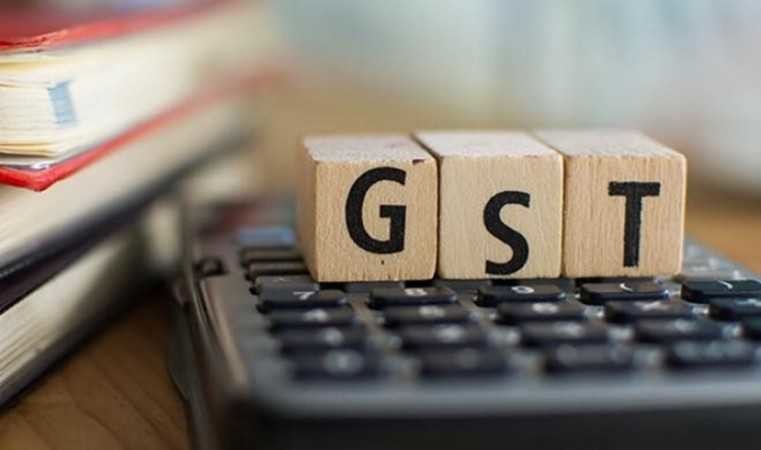As Deputy Finance Mister, Mr. Piyush Goyal, presented the last budget of the government before 2014 lok sabha election, small business owners stuck their eyes on their television screens waiting when their moment would arrive. Let’s see how much the budget addressed the issues of MSME and Startup sector. Here are the key takeaways from the budget for MSME –
Digital economy –

The budget 2019 announced its mission to create 1 lakh digital villages in next 5 years, a dream of the Prime Minister’s dream of digital India. With this bid, we can hope to see more rural StartUps and rural economy doing better due to increased connectivity and information flow.
Small businesses are fast adapting and are also gaining a lot from the fast flow of knowledge as a gift of information technology. There are digital platforms for credit availability, supplier and buyer matchmaking, online conference, crowdfunding, educational and upskilling, online tax filing, advertising and marketing and almost everything which have not only increased the ease of doing business but also brought the costs down.
Investment in women-led startups and businesses – The government, under its Mission for Protection and Empowerment for Women wants to promote women owned businesses and help them to become job creators. For this, Government provided Rs. 1330 crores budget for women – led enterprises through MUDRA, StartUp India.

Instituting National Centre for Artificial Intelligence to aid startups
Budget 2019 went pro technology to promote technology in businesses across India. Piyush Goyal announced the establishment of an advanced Artificial Intelligence centre to aid startups. Nine priority areas have been identified and there are plans to begin development on the national portal on AI in near future.
GeM – The Government Marketplace for MSME
For many who don’t know, there is a Government Marketplace for MSME where they can busy and sell. The budget highlighted how Government Marketplace that supports domestic trade has promoted MSME growth for the economy in terms of 25% of saving.
Employment generation
Despite of the opposition’s uproar over the unemployment data, Government didn’t introduce any specific measures to create employment. Finance minister did talk about the national rural employment guarantee scheme and announced that the allocations may go up to Rs 60,000 crore. But, there was no mention on how and where the employment will be created.
Government to source 25% material requirement from MSME
As per the Budget 2019, Government with its mission to strengthen MSME base, increased its enterprise sourcing from SMEs to 25%. Of this, at least 3% will be sourced from women-owned SMEs.
No Relief for Angel Investors
The Finance minister reduced the fund allocation under Startup India program by Rs. 3 crore. This came as double whammy as StartUp sector already been hit due to angel tax as 2,000 Angel investors’ funded startups have received notices under the section 56 of I-T Act. This is destructive approach as this has already started showing steady decline in the investment flow.
The sector players were looking forward to the 10- year tax holiday for angel investors, but their hopes came crashing to the ground when they didn’t hear mention of any such relief in the budget.
Tax holiday
SME was expecting Budget 2019 to be business friendly and give tax holiday and exemption as a breather, but nothing of that sort happened. India that was emerging as startup destination since last decade might lose interest of many firms, angel investors have started shifting base out of the country in tax holiday destinations. Further, with many firms mulling shifting bases elsewhere, industry experts have even gone to the extent of saying that India might soon lose its sheen as an ideal startup global destination.
New FDI rules on e-commerce
New FDI rules on e-commerce are borne out of the insecurity and the votes of small traders. These do not really favour the customers and are perceived as big gap for the ecommerce to grow further in favour of fail game.
“Budget lacked a few expected measures, such as higher tax exemptions for the middle class and small businesses and the abolition of angel tax. We do encourage creation of a level playing field for MSMEs and providing a 2% rebate on loans up to Rs 1 crore for MSMEs,” Radhika Aggarwal, chief business officer at ShopClues told economic times.
Credit availability to MSME
It is a constant struggle for MSME to get loans on time. The PSB (Public sector banks) lending to MSME had come down drastically.Small businesses need government to come out with solutions so that banks can lend money to MSME with ease on collateral securities.
Allocation of more funds in the digital lending sector
Due to the absence of owned fixed assets, investments and credit history, banks and NBFCs don’t find SME non-creditworthy. So, MSMEs becoming more digitally adaptive are turning to digital platform for borrowing funds called peer to peer lending platforms or P2P. P2P are a good alternative to the informal money lenders who charge very high double-digit interest rates on the loans.
On one hand, PM’s announcement of launching an online portal that can sanction loans up to INR 1 crore within just 59 minutes, is a good news to SMEs, but on the other hand, the P2Ps sector has not seen any relief on the central bank’s ongoing restrictions on the lending and borrowing cap of Rs. 10 lakh in total and Rs. 50000 on individual lender and borrower. Otherwise, a joint study by Omidyar Network and BCG expects the digital lending to MSME to grow 10-15 fold by 20123.
Reduction in GST
MSME’s are the worst hit by the GST implementation in 2017. Its painful to pay GST on raising the invoice. Most of the small businesses work on low margins from 5% to 20% max. Out of which they must pay 18% GST. In order to include GST they have to cut their margins or their product or services making them unfeasible.
Let’s take a small service provider eg a graphic designer who needs to pay Rs.10,000/- invoice, he will pay 18% GST on it. On the other hand, the buyer has to pay 18% GST too. Micro industry that includes small manufacturers, small vendors, business owners, home business owners, traders, who don’t have even much marketing budget to promote themselves and who survive by putting small exhibitions and selling through social media same. Small service providers were looking forward to concessional tax scheme. MSME was expecting Mr. Arun Jaitley to increase sales threshold for compulsory GST registration from Rs 20 lakh to Rs. 50-75 lakh. But, Budget 2019 did not address any of these.
GOI allocation to promote Startups and Make In India
Government has abolished duties on 36 goods in order to promote the Make in India initiative.
Expected fair allocation to Ayushman Bharat, MUDRA, Startup India, Digital India and Skill India for MSME growth.
The government has allocated funds to promote growth in different startup sectors: health tech startups, agritech startups, defence startups and more.
But elections being in vicinity, the budget 2019 came out to be more of a populist budget revolving around the electoral ambitions of the current ruling party – rural India, middle class and digital India being the focus. To sum it up, I, Atul Garg, would say that Budget 2019 was a mixed bag for the small businesses with too many existing pain points.




